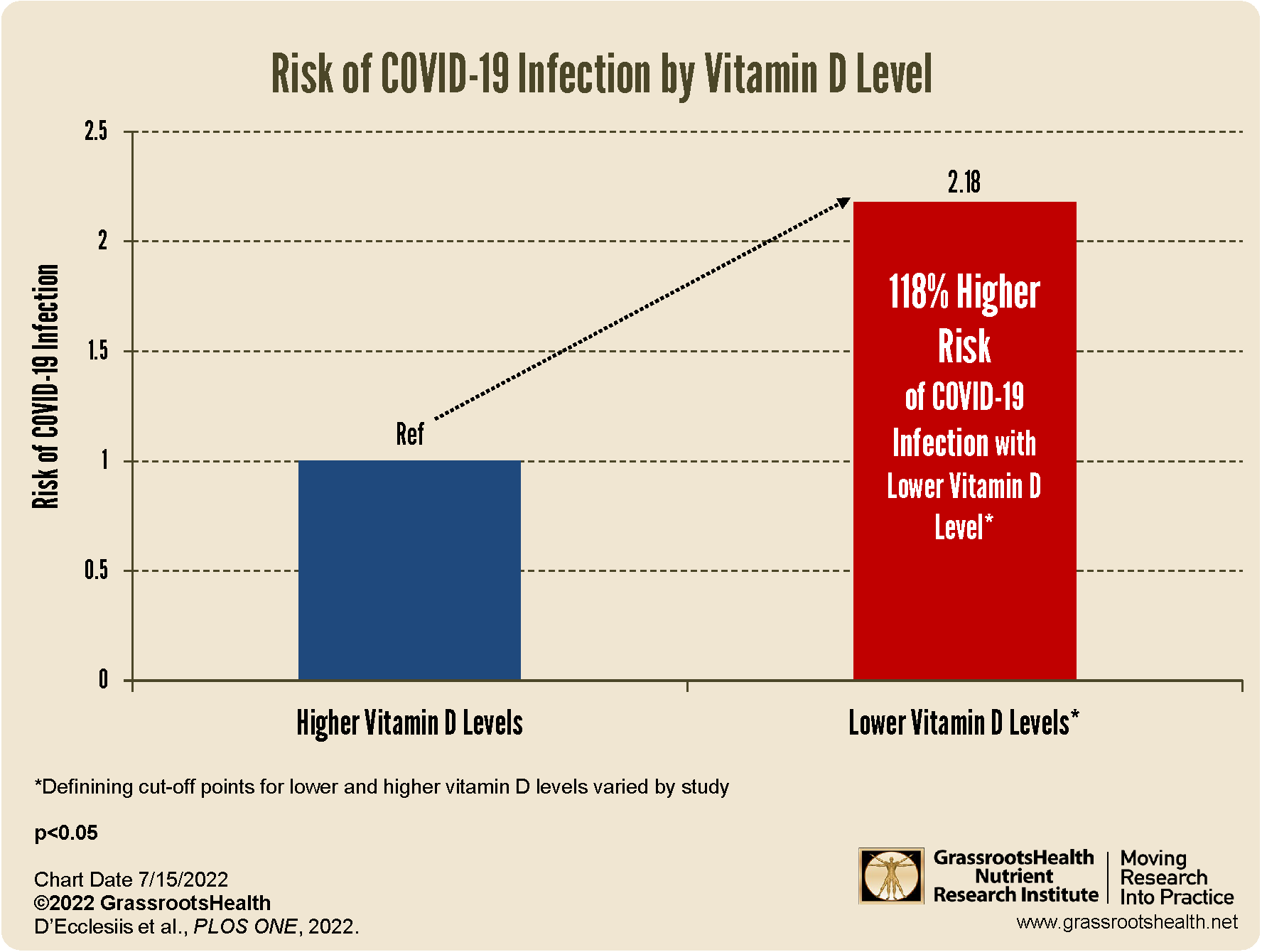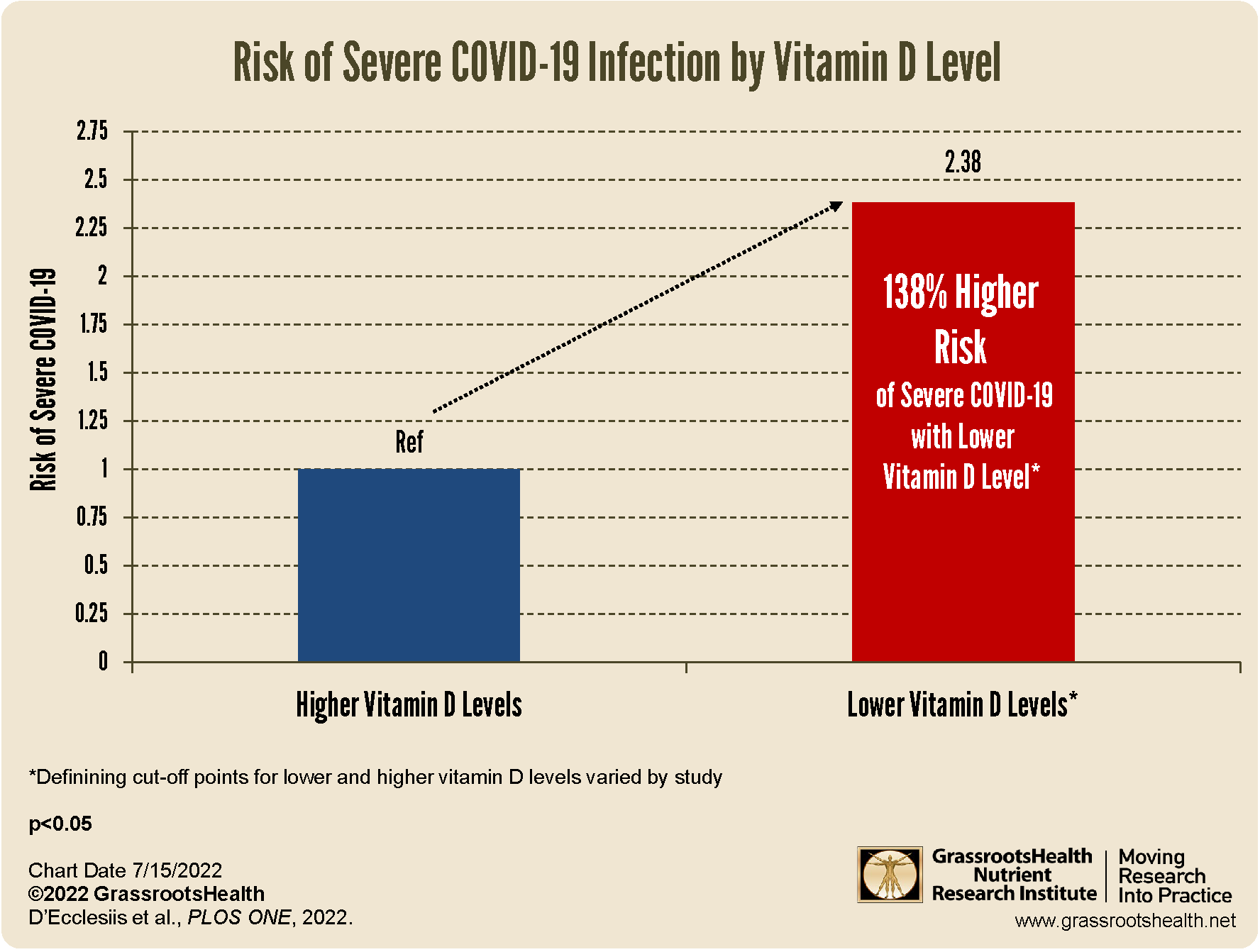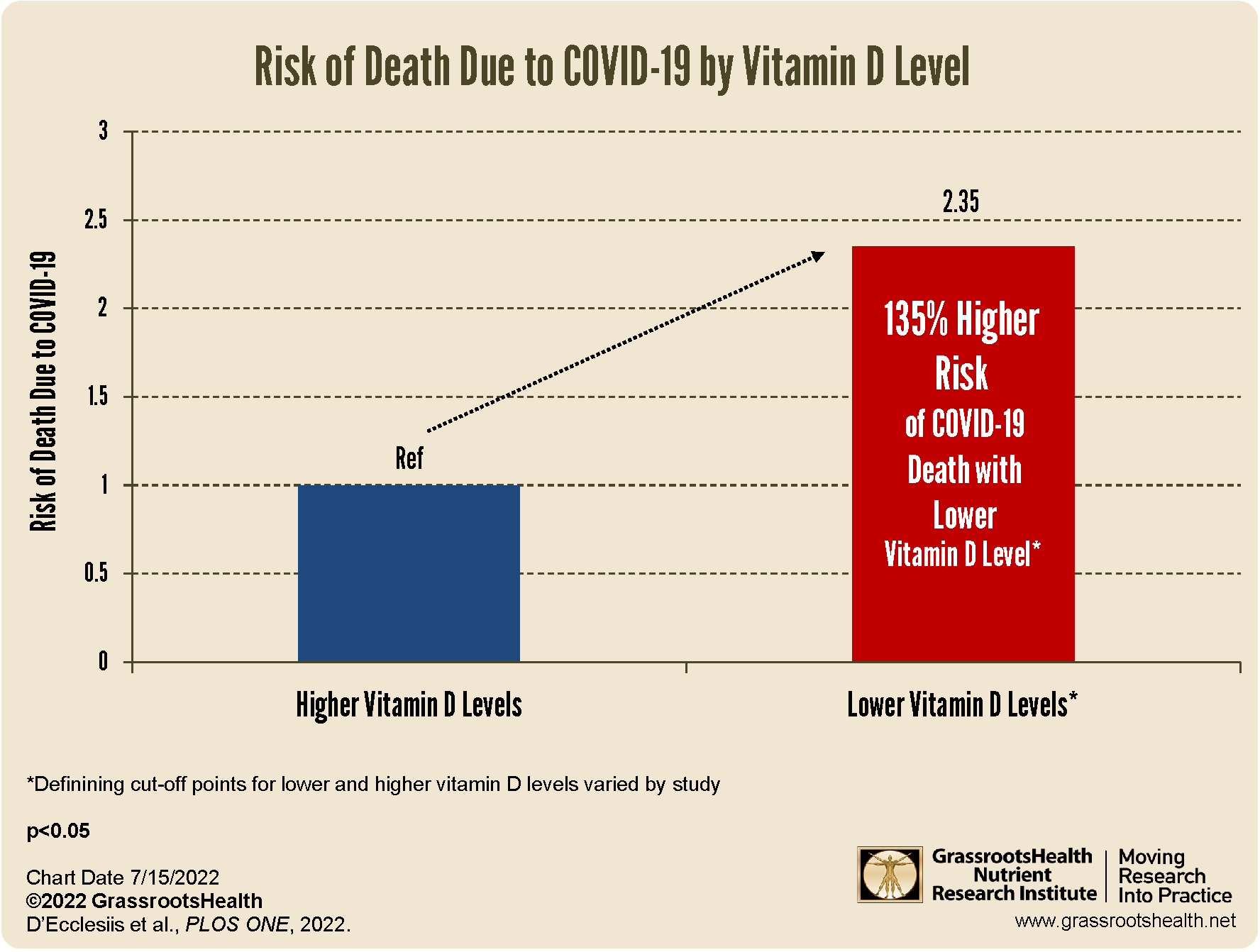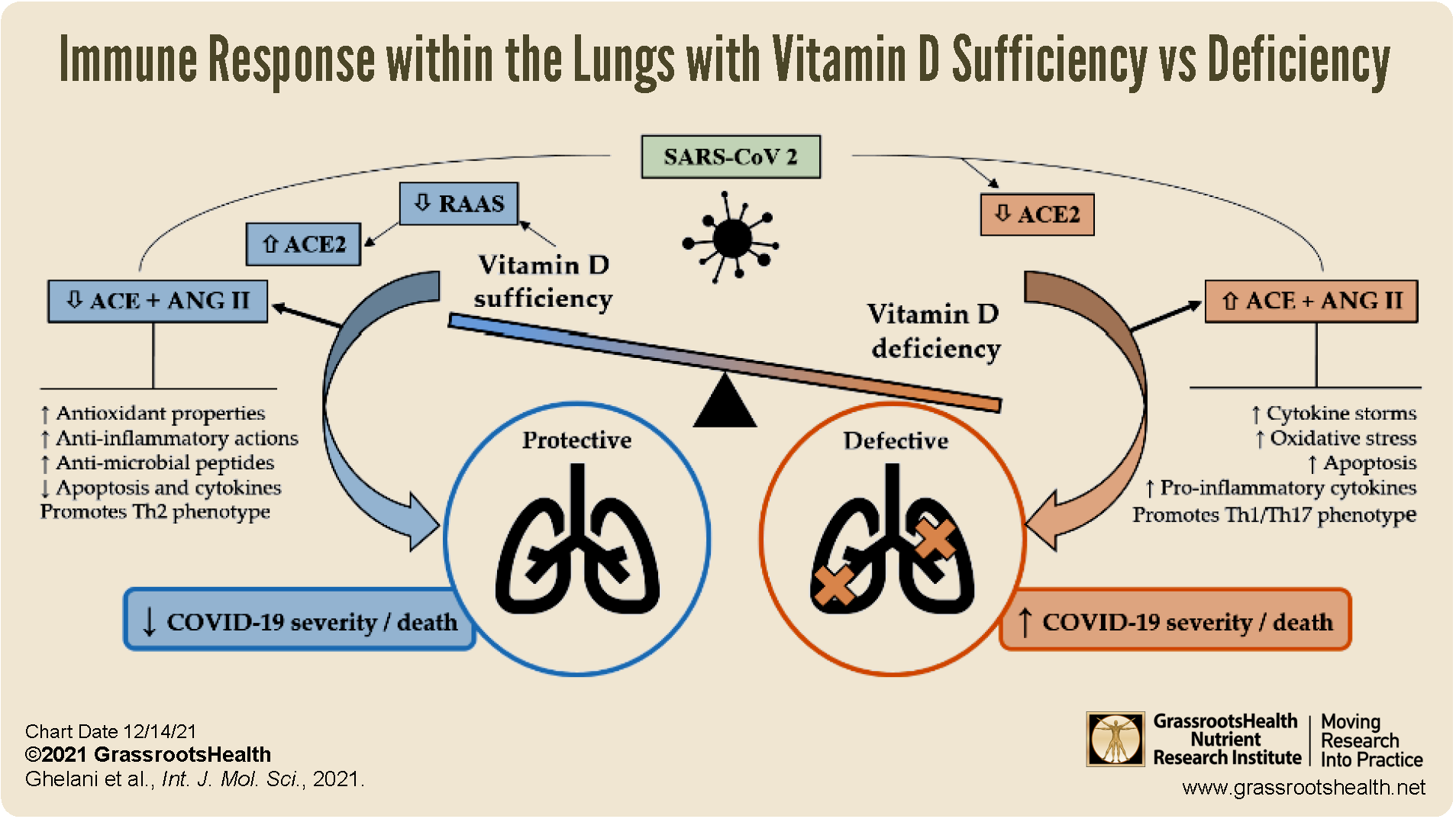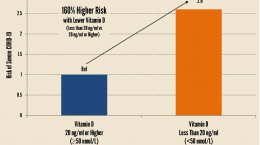Published on July 18, 2022
A new review of 38 studies found that low vitamin D levels were associated with a significantly doubled increased risk of SARS-CoV-2 infection, severe COVID-19, and COVID-19 death
Key Points
- A review using data from a total of 38 studies and 207,587 patients found a 118% increased risk of infection, a 138% increased risk of severe COVID-19 disease, and a 135% increased risk of death due to COVID-19 among those with low vitamin D levels versus higher vitamin D levels
- The study also showed that vitamin D supplementation was associated with a 62% lower risk of severe COVID-19 disease and a 65% lower risk of death among those supplementing with vitamin D; an even higher risk reduction was found among patients who were older as well as those living at higher latitudes
- When vitamin D is available in sufficient amounts, it is able to fulfill its multiple roles within the immune response that are especially influential in fighting a SARS-CoV-2 (COVID-19) infection. In fact, research has now shown that vitamin D has the ability to disrupt the function of 19 out of 27 (70%) SARS-CoV-2 proteins!
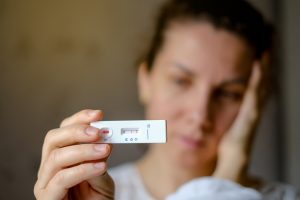 A new review and meta-analysis by D’Ecclesiis et al. looked at the latest evidence on vitamin D and COVID-19, using data from a total of 38 studies and 207,587 patients. The data included vitamin D levels from 205,565 patients and 2022 who were taking vitamin D supplements.
A new review and meta-analysis by D’Ecclesiis et al. looked at the latest evidence on vitamin D and COVID-19, using data from a total of 38 studies and 207,587 patients. The data included vitamin D levels from 205,565 patients and 2022 who were taking vitamin D supplements.
What did this review find?
Vitamin D Level vs SARS-CoV-2 Infection
An increased risk of having a positive COVID test among those with lower vitamin D levels was found among all 8 studies investigating the association between vitamin D level and SARS-CoV-2 infection, with an overall 118% increased risk of infection for those with low vitamin D compared to higher vitamin D levels found when the data was combined. As stated by the authors, there was a “significant double increased risk of infection for subjects with low serum vitamin D levels compared to the highest levels.”
Vitamin D Level vs COVID-19 Severity
16 studies investigated the association between vitamin D level and COVID-19 severity, with vitamin D levels measured at hospital admission. Overall, there was a 138% increased risk of severe COVID-19 disease among patients with low vitamin D levels compared to higher levels. Severe COVID-19 was defined as that requiring ICU admission, ventilation, or intubation.
Vitamin D Levels vs COVID-19 Death
Combined data from 19 studies showed a 135% increased risk of death due to COVID-19 among those with low vitamin D levels, with vitamin D measured either at hospital admission or previously.
Vitamin D Supplementation vs COVID-19 Severity and Death
Data combined from 6 studies showed that vitamin D supplementation was associated with a 62% lower risk of severe COVID-19 disease, while data from 7 studies showed a 65% lower risk of death among those supplementing with vitamin D. An even higher risk reduction was found among patients who were older as well as those living at higher latitudes.
How Vitamin D Works to Fight COVID-19
How does vitamin D work within the body to have such a protective effect against COVID-19?
The following diagram by Ghelani et al. is an excellent illustration of how the presence or absence of vitamin D could determine the overall effect a SARS-CoV-2 infection has within the lungs and on disease progression. As shown in blue, vitamin D sufficiency can help protect the lungs from acute injury due to infection from SARS-CoV-2, while vitamin D deficiency contributes to a defective immune response and increased disease severity and death, as illustrated in orange.
When vitamin D is available in sufficient amounts, it is able to fulfill its multiple roles within the immune response that are especially influential in fighting a SARS-CoV-2 (COVID-19) infection. In fact, research has now shown that vitamin D has the ability to disrupt the function of 19 out of 27 (70%) SARS-CoV-2 proteins!
Additional Studies on COVID-19, Vitamin D, and other Nutrients
A number of studies by now, such as those included in our Vitamin D & COVID-19: A Summary of Published Research eBook, have provided much evidence showing the significant effect that vitamin D status has on COVID-19 disease progression and outcomes, where higher vitamin D levels can reduce the risk of infection and severity and help prevent death. Studies on vitamin D and other nutrients and how they affect COVID-19 and overall immune response can also be reviewed on this COVID-19 research summary page.
Have you taken action on this information yet, for yourself and those around you? Measure your vitamin D level if you haven’t already, and easily share this life-saving information with others.
Having and maintaining healthy vitamin D levels and other nutrient levels can help improve your health now and for your future. Enroll and test your levels today, learn what steps to take to improve your status of vitamin D (see below) and other nutrients and blood markers, and take action! By enrolling in the GrassrootsHealth projects, you are not only contributing valuable information to everyone, you are also gaining knowledge about how you could improve your own health through measuring and tracking your nutrient status, and educating yourself on how to improve it.


